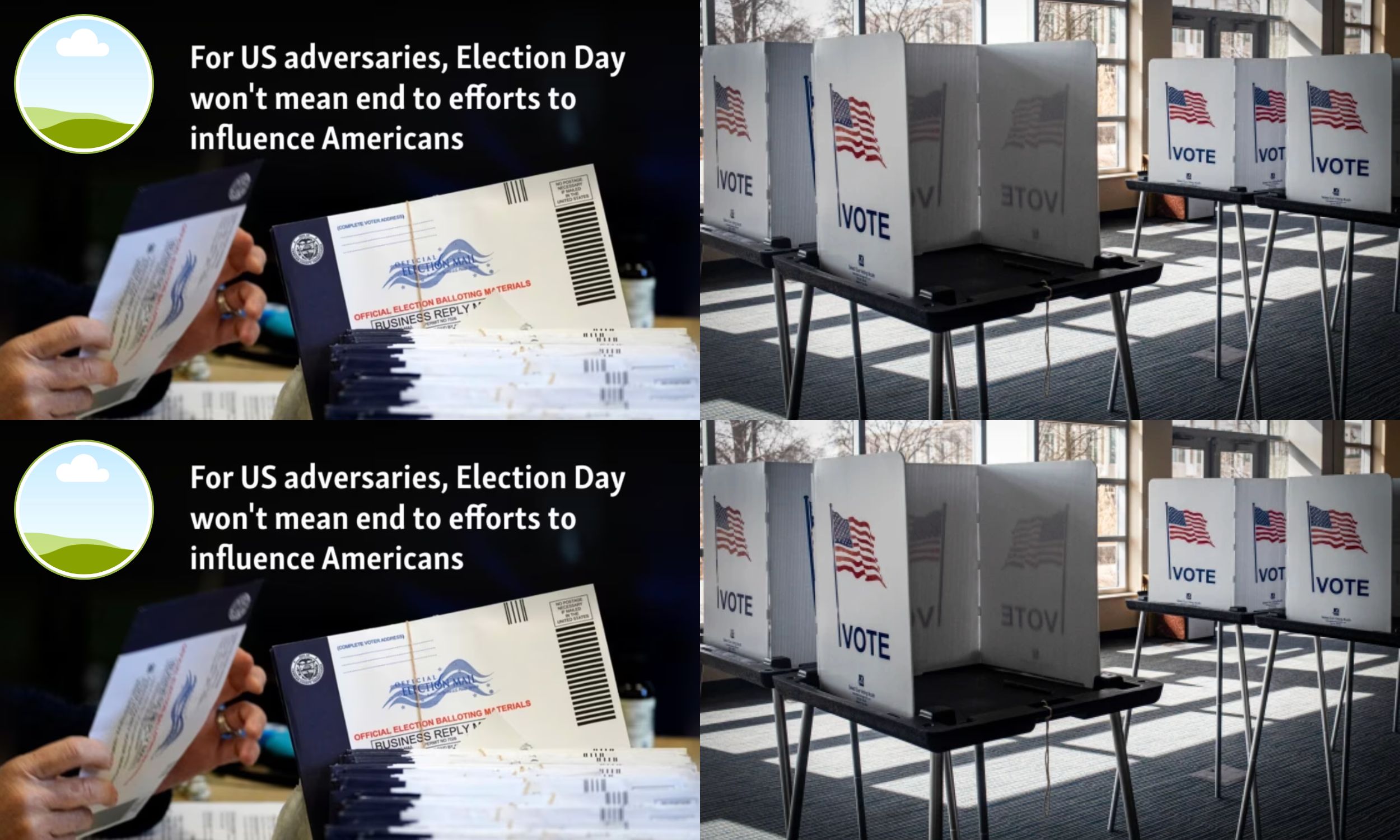Disinformation surrounding the 2024 election reached unprecedented levels, with both foreign powers and American figures amplifying false narratives, casting doubts on the electorate’s trust in the political process.
Russia, Iran, and China continued their campaigns to divide Americans, refining their strategies and expanding their reach. However, these foreign efforts were compounded by the actions of U.S. figures, such as President-elect Trump, who perpetuated unfounded claims about the 2020 election and ongoing fraud in U.S. elections.
David Salvo, managing director of the Alliance for Securing Democracy, noted the ongoing nature of these misleading narratives, which have been persistent for years, fueled both by domestic and foreign actors.

“These efforts aimed to amplify the belief that the electoral system is corrupt,” Salvo said. He pointed out that the Russian disinformation machine appeared to be preparing for a contested election, ready to stir confusion if a clear winner was not determined immediately.
Among the many disinformation tactics were fabricated videos from Russia, including one that falsely implicated Vice President Kamala Harris in a hit-and-run accident and another that accused her husband of accepting a bribe.
Other misleading claims included false reports of noncitizens attempting to vote and a bizarre conspiracy spread by Trump and JD Vance about Haitian migrants eating pets in Springfield, Illinois.
False information was also channeled through websites mimicking legitimate news outlets, while Russian-backed narratives were disseminated through agreements with conservative American influencers. Additionally, Russia and Iran intensified their disinformation campaigns in Spanish, targeting an influential demographic in the U.S.
There were also widespread fake FBI warnings about election problems, often followed by hoaxes involving bomb threats at polling places. Laura Thornton, senior director for global democracy programs at the McCain Institute, commented that the election environment was heavily polluted by such disinformation.
Thornton added that the land has changed, with organizations trying to combat disinformation facing legal challenges, and with Elon Musk’s purchase of Twitter adding further complexity due to his political views and secretive algorithm.
The stakes for Russia were particularly high, given its ongoing war in Ukraine, and its efforts to influence U.S. politics were seen as an extension of that conflict. U.S. intelligence agencies tracked these foreign influence operations, warning that they were becoming more sophisticated, utilizing AI to craft content that seemed authentic.
The Office of the Director of National Intelligence, along with the FBI and the Cybersecurity and Infrastructure Security Agency, stated that Russian-backed actors were behind numerous fake videos and articles aimed at undermining the election’s legitimacy, stoking fear about violence, and amplifying political divisions.
Russia also deployed hundreds of fake news sites, many disguised as local news outlets through the “Doppelganger” project, to disguise their involvement.
These efforts were supplemented by contracts with U.S. influencers like Bennie Johnson and Tim Pool, who, despite not knowing the true backers, inadvertently helped spread these narratives. Salvo described Russia’s strategy of using American voices as “useful idiots” to propagate its disinformation.
While foreign interference played a key role, Salvo emphasized that Americans themselves were also responsible for spreading false information. “You don’t need nation-state actors for disinformation to have an impact,” he said. “Americans are eager to amplify nonsense, and tens of millions of people believe it.”
There was also growing concern about the impact of Spanish-language disinformation on Hispanic voters, particularly Hispanic men, who showed support for Trump. Salvo noted that this was not a coincidence but a deliberate strategy by Russia, which has increased its disinformation efforts in Spanish over the past few years.
The false narratives surrounding the two hurricanes that struck the East Coast highlighted the power and persistence of disinformation. GOP figures spread misinformation about the weather events, with Rep. Marjorie Taylor Greene even suggesting that weather control was possible.
Thornton explained that the rise of information silos in society made it difficult to counter such claims, as large segments of the population remained unaware of accurate information.
These false hurricane-related claims are just one example of the broader problem. Salvo pointed out that the steady flow of disinformation regarding the election reveals how vulnerable the information space has become.
“People are skeptical of almost everything they read, and they’re looking for hidden motives,” he said, drawing a parallel between the skepticism surrounding elections and emergency management.
It remains unclear how much disinformation influenced the outcome of the election, which Trump won by a margin, securing both the popular vote and the electoral college for the first time.
Thornton acknowledged the difficulty in quantifying the impact of disinformation but stressed that dismissing its influence would be wrong. “To say it has no influence is incorrect,” she concluded.


